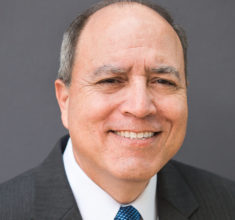By Current Consulting Group (CCG) Compliance Team
This information is provided for educational purposes only. Reader retains full responsibility for the use of the information contained herein.
The legalization of marijuana has spooked many employers into giving up on testing for cannabis. They either erroneously think it’s not legal to test for marijuana in their state or that it’s not worth the trouble. Besides, too many employers are having trouble finding people to hire and pre-employment testing for marijuana just makes it that much harder, right? The inevitable result of this course of thinking is that companies are hiring a lot more drug users and the consequences can be tragic.
The National Transportation Safety Board (NTSB) recently issued a report of its findings regarding a hot air balloon crash that occurred in June of 2021, in Albuquerque, New Mexico. The balloon crashed into a power line, causing the basket to detach from the envelope and plummet to the ground. Five people, including the pilot, were killed.
The mayor of Albuquerque said the following at the time: “If you have ballooned, there are always things that can happen, whether it’s winds, whether it’s equipment. It’s something that our pilots always train for, but it’s always something that, it can inherently sometimes occur.”[i]
Yet, all the training in the world can’t mitigate the risks of workers being high on marijuana while on the job. Two years after the accident, NTSB said that the deadly hot-air balloon crash was, in part, caused by the pilots’ use of cocaine and cannabis.[ii] The official report stated: “Contributing to the accident was the pilot’s use of impairing, illicit drugs” … “Some impairing effects of THC would likely have been present, that would have affected the pilot’s ability to successfully operate the balloon.”
Employers are gambling with the lives of their employees, customers and the general public when they fail to screen job applicants for marijuana. And the truth is pre-employment testing is legal in all 50 states and only New York prohibits employers from testing applicants for marijuana. Even in California and Washington, with their soon-to-be-in-effect anti-marijuana drug testing laws, employers can still test applicants for marijuana using a testing method that detects parent THC rather than its metabolite. This means oral fluid testing, which reveals the presence of the parent drug, and is the only federally endorsed drug testing method available to employers in those two states.
Post-Accident Positive Test Results
One major laboratory reported in 2023 that post-accident positive drug tests recently reached a 25-year high. “In 2022, post-accident marijuana positivity of urine drug tests in the general U.S. workforce was 7.3%, an increase of 9% compared to 6.7% in 2021. The new peak follows a steady increase in post-accident marijuana positivity every year from 2012 to 2022. In that 10-year time frame, post-accident marijuana positivity increased 204.2%.”[iii]
The report added: “These increases in post-accident marijuana positivity correspond with legalization of marijuana in certain states.”
According to the Current Consulting Group’s 2023 Drug Testing Industry Survey, co-sponsored by ClearStar: “At a time when many reports indicate that substance abuse and positive drug test results are on the rise,[iv] [v] pre-employment drug testing is down. Just over 22% of survey participants said only 50-80% of their clients conduct pre-employment testing (down from 23.4% in the previous year’s survey), while 42.3% said 80-99% of their clients still conduct pre-employment testing (down from 45.7%).
Further: “About 17% of providers said they have had clients drop pre-employment testing though not many while another 15% said they expect they have had clients drop it and they expect more will do the same. Only about 24% said they have not had clients discontinue pre-employment testing, but they anticipate it happening.”[vi]
Should You Conduct Pre-Employment Testing?
Employers should consider the following questions when trying to decide whether or not to conduct pre-employment testing in general and for marijuana specifically:
- Is your company located in a state or states that have legalized marijuana? If so, marijuana use in your state is likely on the rise, which means more substance abusing job seekers.
- Is your workplace considered safety-sensitive? More drug users in the workplace means more drug-related accidents as recent positive post-accident drug test trends indicate.
- Do you have drivers who operate heavy machinery, company-owned trucks or vehicles, or use their own vehicles while representing the company? Your company has an obligation to ensure that employees who operate vehicles are fit to do so, before they are hired and each day of their employment.
- Do employees interact with customers or the general public while functioning within the scope of their employment? If an employee’s scope of employment involves interacting with customers and others, there is a presumption that they are qualified to do so without causing harm to others or damage to property.
If you answered “yes” to any of these four questions, then pre-employment testing for marijuana is a smart business decision.
Two Final Considerations
In the end, employers must do what is best for their company’s financial viability. As such, two final considerations are important to note:
- Legal liability. Respondeat superior laws essentially hold employers responsible for the behavior of their workers while they are operating within the scope of employment. A worker high on marijuana while driving a delivery van who causes an accident and harms others may face legal charges, but the employer will be held legally and financially liable for the damages.
- Marijuana impairment. Much is said about the fact that a positive drug test for marijuana does not prove, either scientifically or legally, that someone is impaired at the time of the test. This may be true, but it doesn’t mean they were not impaired. A study from the University of Sydney found that marijuana impairment can last from 3-to-10 hours after the initial usage.[vii] With oral fluid testing, usage can be detected about 15 minutes after usage and for the entire 3-to-10-hour window of impairment. Though other testing methods like urine and hair are accurate and reliable, no other drug testing method can make that claim.
Conclusion
When drug testing is done right, meaning when:
- Presumptive positive results are confirmed at a certified laboratory,
- Confirmed positive results are verified by a Medical Review Officer (MRO),
- Applicants (and employees) are informed ahead of time that the company conducts drug testing for marijuana,
- That positive drug test results may result in adverse employment action, and
- That the company complies with all applicable drug testing laws, including legal marijuana laws that include workplace drug testing language…
Then, as a company, your decision to conduct pre-employment testing that includes marijuana is on solid ground and the likelihood that an employee operating dangerous machinery such as a hot air balloon will not cause an accident without tragic consequences.
End Notes
[i] https://www.foxnews.com/us/hot-air-balloon-crash-fatalities
[ii] https://www.foxnews.com/us/pilots-drug-use-contributed-to-deadly-new-mexico-hot-air-balloon-crash-ntsb
[iii] Post-Accident Workforce Drug Positivity for Marijuana Reached 25-Year High in 2022, Quest Diagnostics Drug Testing Index Analysis Finds. Quest Diagnostics. May 2023. https://newsroom.questdiagnostics.com/2023-05-18-Post-Accident-Workforce-Drug-Positivity-for-Marijuana-Reached-25-Year-High-in-2022,-Quest-Diagnostics-Drug-Testing-Index-Analysis-Finds
[iv] Workforce Drug Test Positivity Climbs to Highest Level in Two Decades, Finds Quest Diagnostics Drug Testing Index Analysis. Quest Drug Testing Index. March 2022. https://newsroom.questdiagnostics.com/2022-03-30-Workforce-Drug-Test-Positivity-Climbs-to-Highest-Level-in-Two-Decades,-Finds-Quest-Diagnostics-Drug-Testing-Index-Analysis
[v] SAMHSA releases 2020 National Survey on Drug Use and Health. October 2021. https://www.samhsa.gov/newsroom/press-announcements/202110260320
[vi] 25th Annual Drug Testing Industry Survey. Current Consulting Group. May 2023.
[vii] Scientists put the stopwatch on cannabis intoxication. The University of Sydney. April 2021. https://www.sydney.edu.au/news-opinion/news/2021/04/12/scientists-put-stopwatch-on-cannabis-thc-intoxication-lambert-drug-driving.html
© 2010-2023 The Current Consulting Group, LLC – No portion of this article may be reproduced, retransmitted, posted on a website, or used in any manner without the written consent of the Current Consulting Group, LLC. When permission is granted to reproduce this article in any way, full attribution to the author and copyright holder is required.













